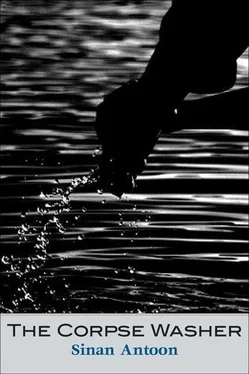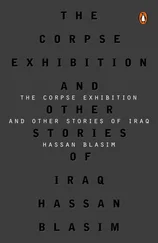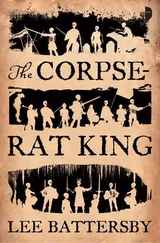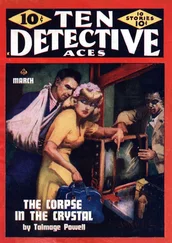What I wanted to say is that I gave this a great deal of thought and only came to this decision because I love you and love your love for me. I never wanted that love to change. I know that you will read these lines and say that you will still love my body, even without my left breast. Don’t lie! Even I no longer love my body and don’t think I could ever love it again. I know you will always love me, but my fight with cancer might not end. This might seem harsh toward both of us, but I must sever myself from your life. I don’t want you to live with a woman who has a ticking bomb in her body. Please forgive me for leaving without saying goodbye. I didn’t want to say goodbye, but I will keep saying goodbye every day.
I will carry you in my memory. My body will carry your scents and pores in its memory.
Please forgive me. I will make things easier for us by not giving you my address and by giving you the opportunity to begin anew with another woman. I am already jealous of her without knowing who she might be.
This could very well be the most difficult sentence I have written in my whole life, but please don’t try to get in touch with me.
Love and kisses,
Reem
I read the letter dozens of times until I had memorized every word. The first few times I wiped tears that fell. The tears kept falling afterward, but deep down inside. I felt they had amassed and settled in my chest and would remind me now and then that they were residing there forever. I tried to get her address, but to no avail. I heard that her father had come back for a few days and had given his lawyer full power of attorney and asked him to sell all their property. I heard later that they had settled in England. I asked Suha about her, but she said she hadn’t heard anything either.
Months and years passed and my wound healed, but it left a scar I would touch from time to time. I used to reread the letter, which I hid in a small box together with an envelope containing some of our old letters and the photographs from our school days.
A few days after Hammoudy disappeared, Sayyid al-Fartusi visited me again. He said his heart sank when Hammoudy didn’t pick up on his cell for five days and when he saw that the mghaysil was closed. He had stopped at Hammoudy’s house and heard the news from his family. I invited him to come in.
He was visibly sad and looked worried as he drank the glass of water I brought him. He said he was willing to pay the ransom, no matter how much the figure was, if it turned out that Hammoudy had been kidnapped. What he added afterward revealed his fears of Hammoudy’s inevitable fate: “God knows what happened to him. He doesn’t deserve this.” Then he recited “ With God alone rests the knowledge when the last hour will come and He sends down rain and knows what is in the wombs. No one knows what he will reap tomorrow and no one knows in what land he will die. Verily, God alone is all-knowing and all-aware. ” He repeated the last verse twice and looked at the floor as if reading something written on it. He shook his head, saying, “There is no power save in God.” Then he spoke of men.
“You know, whenever I think that humans have stooped to the lowest point, I discover that they can stoop even lower. The number of corpses thrown in garbage dumps and being fished out of the river has doubled in recent months. Even the dead are not safe anymore. They are booby-trapping corpses now.”
This “they” everyone used nowadays in referring to the “other side” caught my attention. I was about to ask him who “they” were for him. Then I remembered that he had said on his first visit that he buried everyone irrespective of their sect or religion and that the remains of some of the bodies he buried must have belonged to the murderers who blew themselves up. Instead of asking him about “they,” I wanted instead to know how and why he had started to do what he did.
“It’s a long story.”
“I have time.”
He wasn’t a practicing or pious Muslim when he was young, but what he saw during the withdrawal from Kuwait in 1991 transformed him completely.
“I never prayed or fasted. I even used to drink and was busy enjoying life. After graduating from college I was drafted into the army. A few months before finishing my service, Saddam invaded Kuwait and my unit was transferred there. When the war started, the bombing was continuous and hellish. I don’t know how we survived. The only two who survived in my unit were myself and Musa, a soldier from Ammarah. We were together in the same trench. The others died and were buried in the sand.
“There was chaos from the start, because all communications and supply routes were cut off during the first few days of the war. We heard the decision to withdraw on the radio. Everyone was escaping on the highway toward Basra, because it was close to our units. Every moving object on that highway became a target for the fighter jets and bombers which were hovering and hunting humans as if they were insects. Musa said that to increase our chances of survival we should stay as far away as possible from the highway and the cars and vehicles, many of which were full of what the soldiers had looted. The Americans were firing at any vehicle. We ran like mad dogs for more than two hours without turning back.
“Musa’s decision to abandon the highway saved our lives. Otherwise, we would’ve been charred like all the others I saw burning in their seats and whose remains were scattered all around us. The smell of burning flesh and hair made me sick and tortured me in nightmares for months afterward. I could never forget the smell or the sight of stray dogs devouring soldiers’ bodies near Basra. I would stand there shocked and pick up a rock to throw at them, but Musa would violently pull me away, saying that it was useless because the dogs would return to their feast after we left. All we had with us were our water bottles, some dates in our pockets, and the pocket radio. We made sure not to use it too much to keep the batteries alive. Our goal was to get to Musa’s relatives in Basra and sleep there until things calmed down and then we would go home.
“Our feet were swollen from running and walking the whole day. Basra’s streets were empty when we got there. I saw graffiti on the walls saying ‘Down with Saddam.’ Some of his murals were defaced and smeared with paint. The news on the radio spoke of an uprising which started in Basra and spread all over the south after Bush called on Iraqis to ‘take matters into their own hands.’ You know the rest of the story. They changed the tune a few days later and no one in the world helped those who rose up. They started to call those who rose up hooligans, and then the Republican Guards units came and slaughtered thousands.
“We hid at Musa’s relatives’ for a week. The road to Baghdad was very dangerous. We heard about what they’d done to some of the Ba’thists, that they’d mutilated their bodies and hung some of them from electricity posts. I never liked the Ba’thists myself, and some members of my family had been executed by Saddam on mere grounds of suspicion, I swear to you. But it’s a sin to do such things to any human being, even if he is your enemy. God will choose the appropriate torture for every oppressor. I thought I could just put all those scenes behind me, but those stray dogs followed me to Baghdad. Weeks after I returned, the nightmares started. I would see six or seven dogs tearing apart corpses, and whenever I tried to pick up a rock to throw it at them, it turned to dust. In another nightmare I would see my entire family being charred. When I’d try to pour water on them from my bottle, I’d discover that it was empty. I’d try to throw sand on them, but I would smell that stench again and wake up.
Читать дальше












